
Restore Your Smile With Natural-Feeling Dentures at Our Melbourne Clinic
Missing a few teeth? Dentures could be a cost-effective, simple way to get back your complete smile - and the confidence that comes with it. Learn more about how the team at Mulgrave Dental Group can help, and what sort of options are available to you.
- Services
- >
- General Dentistry
- >
- Dentures
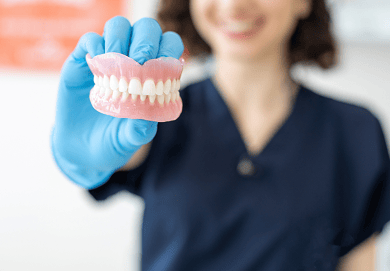
What Are Dentures?
Dentures used to be the best way to help someone with multiple missing teeth restore their full smile, though these days there are many more modern options like All-on-4 treatment.
Dentures are custom-made artificial teeth made from a combination of materials including acrylic, nylon and metal. They usually sit on a plate or wire, and can either hook onto your remaining teeth for stability or else be glued into place with a special adhesive. These replacement teeth are designed to look and feel mostly natural, and, unlike other forms of artificial teeth, most types of dentures can be removed for cleaning.
Wearing dentures does take some getting used to, and they never quite feel identical to your regular teeth. But, they can restore the full functionality of your mouth as well as its aesthetic appearance, and they’re getting more and more comfortable as the technology evolves.

The Denture Fitting Process
At Mulgrave Dental Group, our denture fitting process is tailored to ensure a comfortable and natural fit. We’ll take precise measurements and work with you to create dentures that suit your needs and lifestyle. Throughout the process, we’ll guide you every step of the way, ensuring you feel confident and satisfied with the results.
It’s simple to start your journey to getting dentures - just pop in for a consultation!
During this appointment, our dental team will perform a comprehensive examination to assess your oral health and determine if dentures are the right solution for you.
The next step varies from person to person, as it depends on the condition of your mouth. If we need to do any additional work to ensure you’re ready for dentures (such as treating decay), we’ll talk to you about that at the time.
When you’re ready for dentures, your friendly dentist will take impressions and measurements of your mouth in order to tailor-make a set that fits snugly and comfortably, matching the unique contours of your teeth.
These impressions and measurements are sent off to our advanced dental lab, where our expert technicians will make your dentures. This process typically takes a few weeks, and in the meantime you may be fitted with temporary dentures to maintain your oral function and appearance.
Later you’ll return for a follow-up appointment where we’ll fit your new dentures in place and check how it feels. It’s possible there may need to be a few adjustments made, which we’ll make at the time for optimal comfort and function.
Post-fitting, we’ll provide you with instructions on how to care for your new dentures and maintain good oral hygiene. We’ll also schedule follow-up appointments to check how you’re getting on and make further adjustments, if required. It’s very common to need a few small changes as you get used to wearing dentures for the first time, so don’t worry - this is normal.
Types of Dentures
Dentures come in a few different types, designed to treat all sorts of problems or to support people with varying needs. The right choice for you will depend on your unique mouth, and the recommendations of your Mulgrave Dental Group expert.
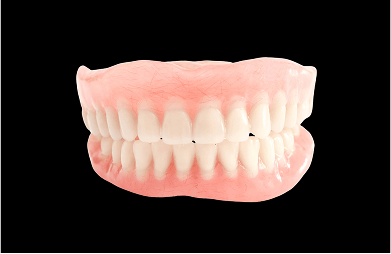
Full Dentures
Also known as complete dentures, full dentures replace all teeth in the upper or lower jaw. They consist of a gum-coloured acrylic base that fits over the gums, with artificial teeth attached. Full dentures are removable, and held in place by suction (or, occasionally, denture adhesive).
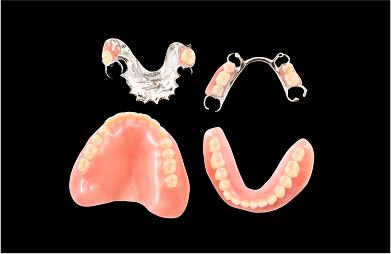
Partial Dentures
Partial dentures are designed for people who still have a few natural teeth remaining. These dentures fill in the gaps left by the missing teeth, helping to prevent their neighbours from shifting out of position.
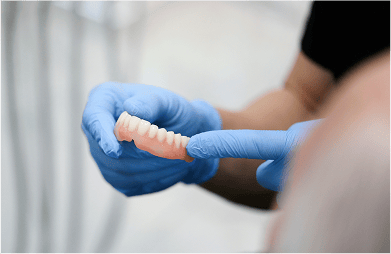
Immediate Dentures
Immediate dentures are full or partial dentures inserted on the same day that any remaining teeth are extracted. They help to ensure that you don’t go without teeth during your healing period.
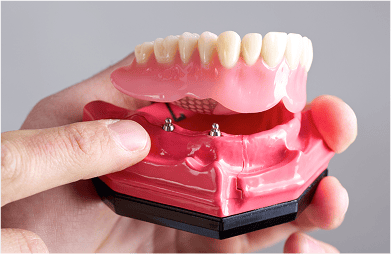
Implant-Supported Dentures
Implant-supported dentures are anchored to dental implants, which are surgically fused with your jawbone to provide superior stability and comfort. Some types are removable and others are fixed, and they offer many benefits to function and comfort compared to regular dentures.
What Do Dentures Cost?
Financing Options for Dentures
We accept a variety of payment methods for dentures and offer a number of interest-free payment plans to help make it easy to invest in your oral wellbeing.
We offer a variety of flexible payment plans for fitting dentures. Here you can spread out the cost of your treatment, paying in simple, manageable monthly instalments. We offer both zero- and low-interest options, depending on your budget.
Financing programs are also available at Mulgrave Dental Group, allowing you to finance the cost of your dentures through reputable third-party financing companies. These programs often provide competitive rates and flexible repayment terms, simplifying the management of your treatment costs.
In some cases, you may be able to access a portion of your superannuation fund early to cover the cost of necessary medical treatment - including dentures. We can guide you on whether or not you’re eligible, and if so, how to apply.
Dental insurance plans sometimes cover cosmetic dentistry treatment, including dentures. If you’re not sure what your insurance will cover, chat with us during your appointment and we’ll help walk you through it.
Dentures FAQs
We know that getting dentures fitted can seem like a big change, and it can be both very exciting and a little daunting to know you’re about to restore your full smile. To help ease any concerns, we’ve answered a few common questions below to help you learn more before your consultation.
Dentures are designed to act like your regular teeth so you’ll mainly eat what you’re used to. Still, unless your dentures are permanently fixed we generally recommend you avoid very hard or sticky foods, as it can damage the dentures.
During your consultation appointments this is something our team will talk to you about, making sure you get advice tailored to your unique situation.
Over time, your dentures should feel fairly natural, and certainly very comfortable, as they will have been shaped to your unique mouth. They’ll likely never feel exactly the same as your natural teeth, and it might feel a little strange in those first few weeks as you get used to them for the first time - just the same as if you bought new shoes or tried on new glasses.
Dental implants tend to be both more secure and feel more natural, which is why many patients prefer All-on-4 treatment or dental bridges.
Learn more: Dental implants
Yes, dentures can be adjusted for a better fit. If you’re experiencing any discomfort from your dentures it’s important to visit your dentist as soon as possible to get them altered.
Yes, dentures can be repaired. If they become cracked, chipped or broken, bring them to your dentist as soon as you can. Never try to repair dentures yourself as it could cause more damage.
While it’s possible to sleep with dentures in, we’d recommend removing them at night. This gives your gums and jaw a chance to relax, and it’s an opportunity to clean your dentures of any bacterial build-up from the day
Dentures do need to be cleaned each day, just like your regular teeth. You can brush them with a soft-bristled toothbrush, and you can also buy a special denture cleaner instead which is less abrasive than regular toothpaste.
To keep your dentures clean, you’ll want to rinse them after each meal and brush twice a day to keep food particles and plaque away from your artificial teeth. You can also soak them overnight in a denture-soaking solution, as it helps them to keep their shape.
Don’t worry about remembering all of this right now. We’ll cover everything you need to know about dentures during your appointments!

Our clinic hours:
- Mon: 9 am - 6 pm
- Tue: 9 am - 7 pm
- Wed: 9 am - 7 pm
- Thu: 9 am - 7 pm
- Fri: 9 am - 5 pm
- Sat: Closed
- Sun: Closed
Any Questions?
Don’t let uncertainty put you off getting the treatment you need. We’re here to help.
At Mulgrave Dental Group, you’re our priority. We offer an array of modern dental and cosmetic services along with exceptional customer service in a warm, relaxed atmosphere. We have well over 50 years of collective experience, so please don’t hesitate to get in touch if you need us.
Contact us today to schedule your consultation and take the first step towards a natural-looking, fully functional smile.
What Sets Mulgrave Dental Group Apart?

Custom-Fitted for Comfort and Confidence
We create dentures that are individually crafted to fit your mouth perfectly. Our focus is on achieving a natural look and feel, helping you eat, speak, and smile with complete confidence.
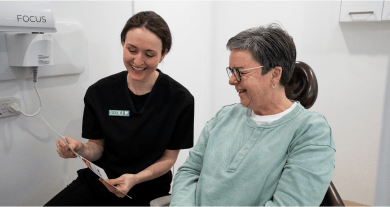
Supportive Care at Every Step
From your initial consultation to the final fitting, our caring team is with you at every stage. We take the time to understand your needs, explain your options clearly, and ensure you feel comfortable and supported throughout the entire process.
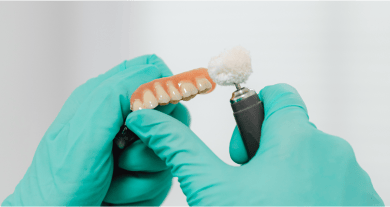
Modern Techniques for a Natural Look
Using the latest materials and techniques, we design dentures that are durable, lightweight, and natural-looking. Our goal is to help you achieve a smile that feels just right for you, both aesthetically and functionally.
Rediscover the Power of Your Smile
Seeking treatment for missing teeth can improve both your appearance and jaw function - giving you newfound confidence in your smile.
At Mulgrave Dental Group, we craft dentures that look great and feel even better. Book your consultation today and take the first step towards a confident new you.
How to Contact Us
Mulgrave Dental Group is located only 20 minutes from Melbourne CBD, just off Wellington Road. Come visit our office at 47 Wanda Street, Mulgrave, 3170 Victoria.
Call us on: 03 9562 5156
Email: reception@mulgravedentalgroup.com.au
Ready for a new smile? Book your dentures consultation today
Explore Alternatives to Dentures
Depending on the condition of your mouth and the number of missing teeth, there may be other treatment options available to you beyond dentures. These are just a few examples:

Dental Implants
Dental implants are artificial teeth which are surgically fused to your jaw bone, helping to replace a missing tooth with a brand new one that looks, and feels, the part.
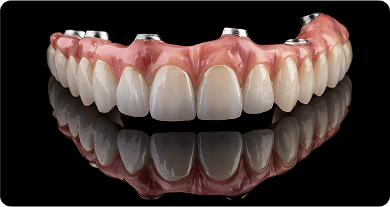
All-On-4
All-On-4 dental implants are a very modern treatment option for replacing missing teeth by anchoring a framework of artificial replacements to your jawbone using four titanium screws - hence the name.
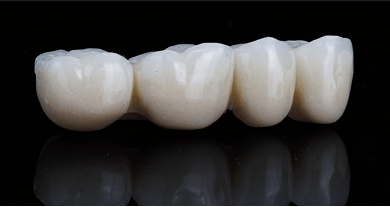
Dental Bridges
Dental bridges are custom-fitted prosthetics which help fill a gap in your smile with a natural-looking replacement, without the surgery requirements of other treatment options.